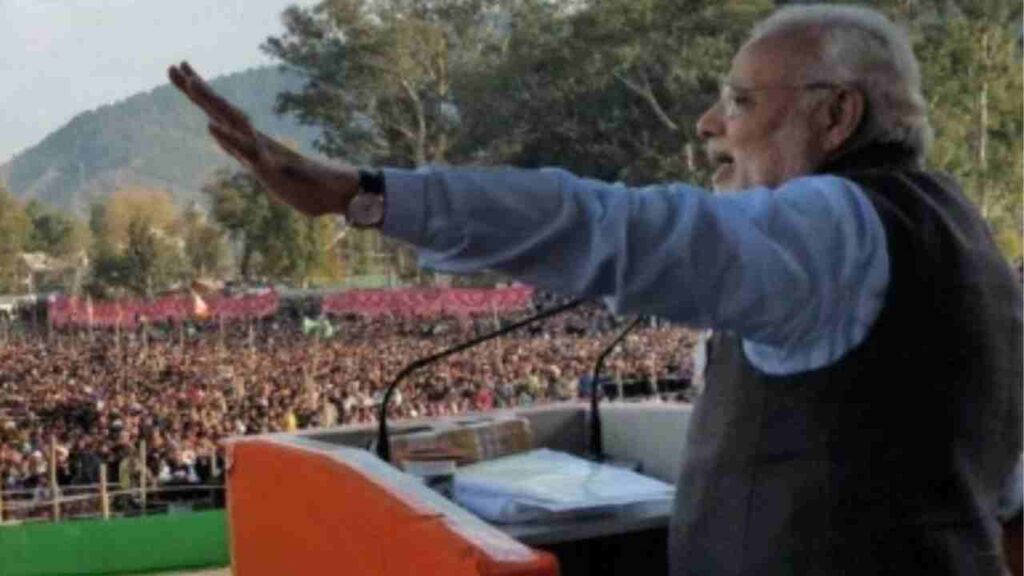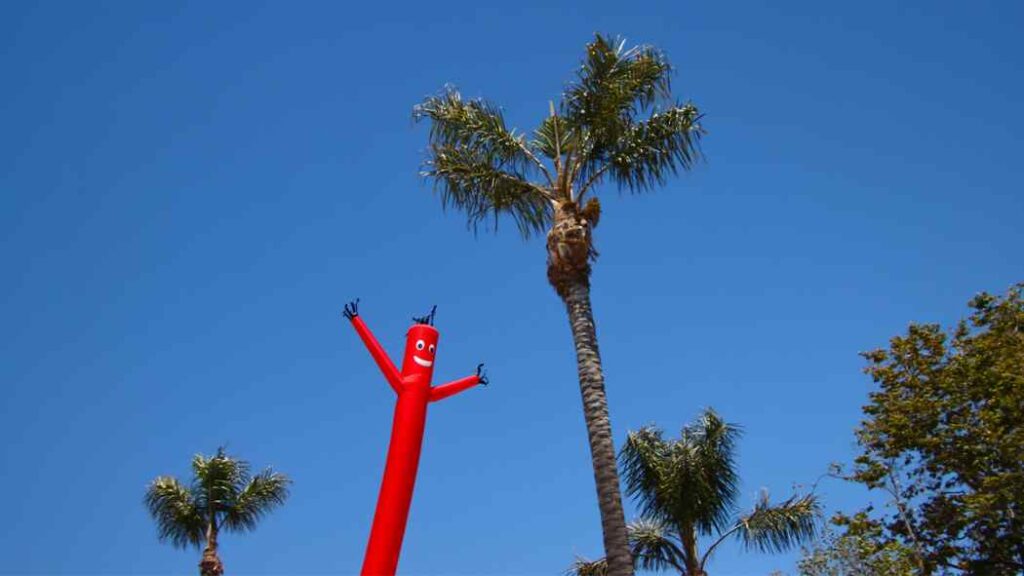Rahul Gandhi Raebareli move : Prime Minister Narendra Modi, addressing a rally in Bengal, took a jibe at Rahul Gandhi’s decision to contest the Lok Sabha elections from Raebareli, accusing him of fleeing from Amethi due to fear of defeat. The move comes as a significant shift in Gandhi’s political strategy, as he relinquishes his stronghold of Amethi, where he faced a surprising defeat in the 2019 elections, in favor of Raebareli, a constituency previously held by his mother, Sonia Gandhi. PM Modi’s mocking remarks, invoking Gandhi’s own slogan “Daro Mat,” reflect the heightened political tensions surrounding the upcoming elections.
Daro Mat, Bhaago Mat”: PM Sneers At Rahul Gandhi Over Raebareli Move

PM Modi’s Mockery:
- During his rally in Bengal, PM Modi derided Rahul Gandhi’s decision to switch constituencies, characterizing it as an act of cowardice. He sarcastically urged Gandhi not to be afraid and not to run away, using Gandhi’s own phrase “Daro Mat” against him.
- PM Modi’s remarks underscored the BJP’s interpretation of Gandhi’s move as an acknowledgment of his inability to secure victory in Amethi, where he faced a resounding defeat at the hands of BJP’s Smriti Irani in the previous elections.
ALSO READ : “Rahul On Fire”: Pak Politician’s Praise For Rahul Gandhi Draws BJP’s Anger
BJP’s Reaction and Criticism:
- Several BJP leaders seized on Gandhi’s decision, portraying it as a sign of weakness and fear of electoral defeat. Union Minister Anurag Thakur criticized Gandhi for shifting constituencies, suggesting that his decision stemmed from apprehensions about losing in Amethi.
- Uttar Pradesh Deputy Chief Minister Brajesh Pathak expressed confidence in BJP’s prospects in Raebareli, asserting that the people there would reject Gandhi as their representative.
Congress’s Response and Decision-Making Process:
- In response to PM Modi’s mockery, Congress leader Kishori Lal Sharma defended Rahul Gandhi, emphasizing his commitment to the country and dismissing allegations of fear.
- The Congress’s decision to delay announcing Gandhi’s constituency choice reflects internal deliberations over the optimal electoral strategy, considering various factors such as Rahul contesting from Amethi and Priyanka Gandhi from Raebareli.
Conclusion and Voting Schedule:
- Raebareli holds historical significance for the Congress, having been represented by stalwarts like Indira Gandhi and Sonia Gandhi. The party’s decision to field Rahul Gandhi from Raebareli underscores its commitment to retaining the stronghold.
- With Raebareli and Amethi scheduled to vote in the fifth phase of the Lok Sabha polls on May 20, 2024, the political landscape in Uttar Pradesh is poised for intense competition as parties vie for electoral supremacy.
SEE ALSO : PM Modi Warns Against Religious Quotas: Congress Under Fire
FAQ’S : Rahul Gandhi Raebareli move
- Why did Rahul Gandhi decide to contest from Raebareli instead of Amethi?
- Answer: Rahul Gandhi’s decision to contest from Raebareli was influenced by various factors, including the political landscape, potential victory chances, and party strategy.
- What prompted Prime Minister Narendra Modi to mock Rahul Gandhi’s move?
- Answer: PM Modi’s mockery stemmed from Rahul Gandhi’s perceived fear of defeat in Amethi, leading to his shift to Raebareli, as highlighted by the Prime Minister in his speech.
- Was Rahul Gandhi’s move unexpected?
- Answer: While some may have anticipated Rahul Gandhi’s decision, others were surprised by the sudden announcement, reflecting the dynamic nature of Indian politics.
- How did the BJP react to Rahul Gandhi’s decision?
- Answer: The BJP seized on Rahul Gandhi’s move as a sign of weakness and fear, using it to bolster their own campaign narrative.
- What impact could Rahul Gandhi’s move have on the Lok Sabha elections?
- Answer: Rahul Gandhi’s move could influence voter perceptions and shape the electoral dynamics, potentially impacting the outcomes in both Raebareli and Amethi.
- Did Rahul Gandhi face criticism from within his party for the decision?
- Answer: While some party members supported Rahul Gandhi’s move, others questioned its strategic wisdom, leading to internal debates and discussions.
- How did the people of Raebareli react to Rahul Gandhi’s candidacy?
- Answer: The reaction of the people of Raebareli varied, with some expressing support for Rahul Gandhi while others remained skeptical or indifferent.
- What factors influenced Rahul Gandhi’s choice of constituency?
- Answer: Rahul Gandhi’s decision was influenced by a range of factors, including historical ties, electoral prospects, and strategic considerations.
- Was Rahul Gandhi’s move a calculated political strategy or a defensive maneuver?
- Answer: Opinions vary on whether Rahul Gandhi’s decision was a calculated move to strengthen his electoral position or a defensive response to perceived vulnerabilities.
- How does Rahul Gandhi’s decision reflect broader trends in Indian politics?
- Answer: Rahul Gandhi’s decision reflects the fluid and competitive nature of Indian politics, where candidates and parties constantly adapt to changing circumstances.
- Did Rahul Gandhi consult with party leaders before finalizing his decision?
- Answer: Rahul Gandhi likely consulted with key party leaders and strategists before making his decision, considering various perspectives and inputs.
- Will Rahul Gandhi’s move impact the Congress party’s electoral prospects overall?
- Answer: Rahul Gandhi’s move could influence the Congress party’s electoral fortunes, both positively and negatively, depending on how it is perceived by voters and political observers.
- Did Rahul Gandhi’s decision surprise political analysts?
- Answer: Rahul Gandhi’s decision generated mixed reactions among political analysts, with some surprised by the move while others saw it as a logical response to changing circumstances.
- How did the media react to Rahul Gandhi’s decision?
- Answer: The media’s reaction to Rahul Gandhi’s decision varied, with different outlets offering diverse perspectives and interpretations of its significance.
- What implications does Rahul Gandhi’s move have for his political career?
- Answer: Rahul Gandhi’s decision to contest from Raebareli could have significant implications for his political trajectory, shaping his image and future role within the party.
- Will Rahul Gandhi’s move impact voter turnout in Raebareli and Amethi?
- Answer: Rahul Gandhi’s candidacy may influence voter turnout in both Raebareli and Amethi, with his presence likely to energize supporters and opponents alike.
- Did Rahul Gandhi face backlash from his political opponents for the decision?
- Answer: Rahul Gandhi faced criticism and mockery from his political opponents, who seized on the move as an opportunity to undermine his credibility and leadership.
- How does Rahul Gandhi’s decision align with broader electoral trends in India?
- Answer: Rahul Gandhi’s decision reflects the larger trends of strategic realignment and coalition-building in Indian politics, where candidates seek to maximize their electoral advantage.
- Did Rahul Gandhi’s move generate debate within the Congress party?
- Answer: Rahul Gandhi’s decision sparked internal discussions and debates within the Congress party, highlighting the diversity of opinions and perspectives within the organization.
- What message does Rahul Gandhi’s move send to his supporters and detractors?
- Answer: Rahul Gandhi’s decision sends a message of resilience and adaptability to his supporters, while his detractors may view it as a sign of weakness or indecision.














